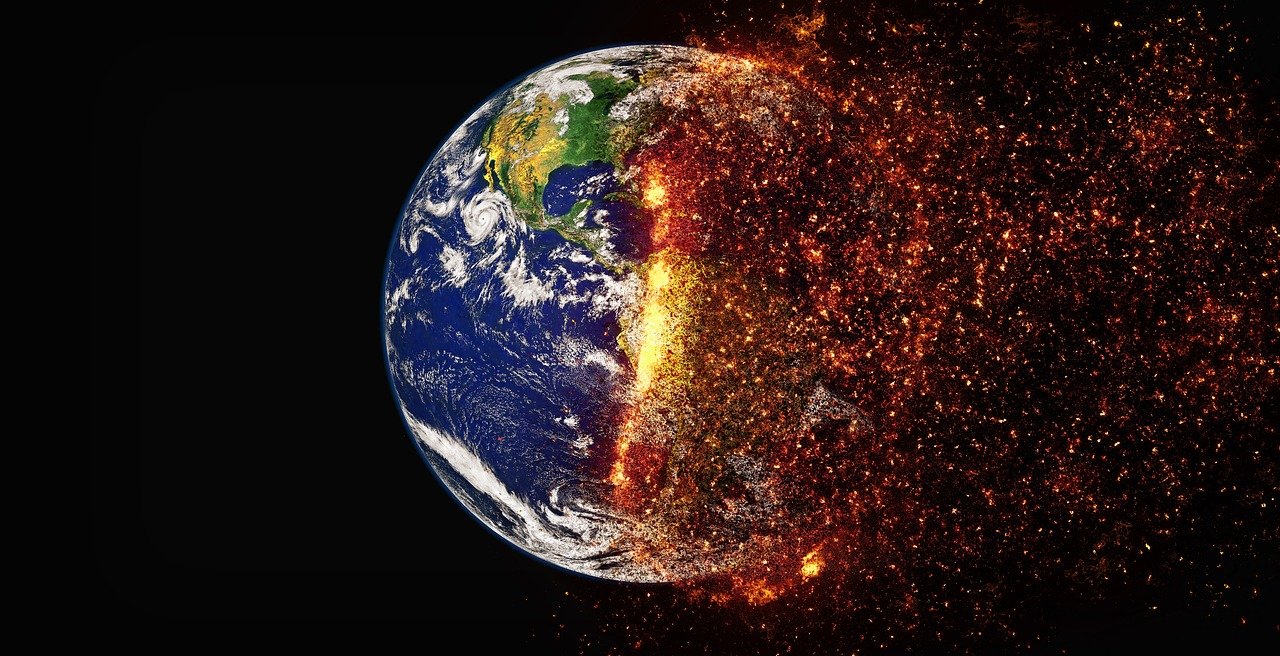There is no Planet B

“Dear friends, humanity is waging war on nature. This is suicidal.
Nature always strikes back, and it is already doing so with growing force and fury.”
General António Guterres
U.N. Secretary
The hottest decade ever
2011-2020 was the hottest decade on record.
Our earth burned as fires swept across the Amazon causing devastation to the “Lungs of the Planet”.
Across continents, the wildfires in Australia blanketed communities with toxic smoke – the scorched land equivalent to the size of England.
Our world is suffering.
With every natural disaster, the evidence is mounting – from flooding to earthquakes, pollution, and unseasonal conditions.
Is our planet rebelling against us?
How did climate change start?
Since the mid-20th century, population growth has had an unprecedented impact on the Earth’s climate.
Our human bodies generate greenhouse gases largely consisting of CO2 and methane. These gases become trapped in the Earth’s atmosphere causing the planet to become exponentially warmer than it would naturally.
Our lifestyle plays a significant role too. Energy consumption, deforestation, agriculture and industry release vast quantities of CO2 when fossil fuels are burned.
This perfect storm of fossil fuels and human emissions have created large-scale shifts in weather patterns.
Shifting weather patterns are what we’ve come to know today as climate change.

The pandemic gave us a taste of what a ‘cleaner’ planet could be like with the largest decline in CO2 emissions in almost a century.
But so much more needs to be done.
“Right now, the world is on a pathway to between 3 and 4 degrees Celsius by the end of the century. Countries need to double and triple their 2030 reduction commitments to be aligned with the Paris target.” says Sir Robert Watson, co-author of the report that closely examined the pledges under the Paris Agreement.
What is the Paris Agreement?
The world united in 2015 to create The Paris Agreement, a legally binding international treaty on climate change. Their collective mission is to reverse global warming to pre-industrial levels – to below 2 degrees Celsius with an ideal target of 1.5 degrees Celsius.
To date, 197 countries have signed it, including nations in conflict like war-torn Syria.
Are we on track?
Since the Paris Agreement, many countries have established carbon neutral targets and introduced low carbon solutions.
These three are making tremendous strides towards changing our planet for the better:
- Morocco
By 2030, Morocco aim to generate 52% of their electricity production from renewables.
And they’re on track at 35% thanks to investment in projects like the Noor Quarzazate complex – the largest concentrated solar farm in the world. This covers an area the size of 3,500 football fields and generates enough electricity to power two cities the size of Marrakesh. - The Gambia
Like Morocco, the main pathway to reduction is the use of renewables. They’ve launched a project to restore 10,000 hectares of forests, mangroves and savannahs. In addition, they’re promoting the use of fuel-efficient stoves to reduce the overuse of forest resources.
- India
India has emerged as a global leader in renewable energy. With a goal of generating 40% of its power through renewables by 2030, India’s progress has been so rapid that it could easily reach target one decade early.
And what about the UK?
The UK is an interesting one. By 2018, we achieved a 44% reduction in emissions, but The Climate Change Committee indicated that we were falling behind.
The government subsequently declared a climate emergency, passing legislation to achieve net zero emissions by 2050.
Some measures include a ban on gas boilers in newly built homes from 2025. And by 2035, only zero emission vehicles will be sold as petrol and diesel engines are phased out.
As individuals we can all do our bit.
How can we improve our carbon footprint?
We have more influence than we think.
Every small change at an individual or household level can have a positive impact on our planet for future generations.
As consumers and citizens, we can increase pressure on Government and companies to enforce change. Look at what we achieved with single plastic bag use – since the 5p charge was introduced, plastic bag sales have fallen by more than an impressive 95%.
5 things we can all do:
- Read more about these organisations who are fighting climate breakdown
- Shop differently – the clothing sector outputs 3% of the world’s global emissions – consider more sustainable fashion and pre-loved clothing.
- Switch to a more plant-based diet
- Change to a green bank
- Move to a green energy provider and save energy at home by installing a smart meter. Home-owners or residential landlords can access a Green Homes Grant to assist with the cost of making their homes more energy efficient
Because there is no Planet B.
Author: Eve Stansell

Responses